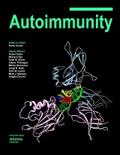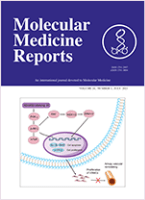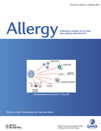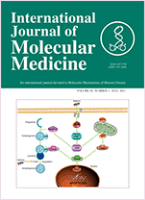
AUTOIMMUNITY
Scope & Guideline
Pioneering insights into autoimmune diseases.
Introduction
Aims and Scopes
- Autoimmune Mechanisms and Pathways:
The journal emphasizes research on the underlying mechanisms of autoimmune diseases, including the roles of immune cells, cytokines, and signaling pathways. This includes studies on molecular interactions and the impact of genetic and environmental factors on autoimmunity. - Animal Models in Autoimmunity Research:
A significant focus is on the development and use of animal models to study autoimmune diseases. These models help to elucidate disease mechanisms and evaluate potential therapeutic interventions. - Biomarkers and Therapeutic Targets:
Research is directed toward identifying biomarkers for autoimmune diseases and understanding their clinical implications. Additionally, the journal reports on novel therapeutic targets and strategies for managing autoimmune conditions. - Role of MicroRNAs and Non-coding RNAs:
The journal investigates the involvement of microRNAs and other non-coding RNAs in the regulation of immune responses and their potential as therapeutic targets in autoimmune diseases. - Clinical Studies and Epidemiology:
It also publishes clinical studies that explore the epidemiology, diagnosis, and treatment of autoimmune diseases, contributing valuable insights to improve patient care.
Trending and Emerging
- Role of Gut Microbiota:
There is an increasing focus on the role of gut microbiota in autoimmune diseases, suggesting that microbial composition can influence disease onset and progression. This emerging theme is crucial for understanding the gut-immune system relationship. - Inflammasomes and Pyroptosis:
Research on inflammasomes, particularly the NLRP3 inflammasome, and the process of pyroptosis is gaining traction. These studies are relevant for understanding inflammatory mechanisms in autoimmune diseases. - Non-coding RNAs in Autoimmunity:
The exploration of non-coding RNAs, including microRNAs and circular RNAs, is trending. Their regulatory roles in immune responses and potential as therapeutic targets are becoming increasingly recognized. - Integrative Approaches to Autoimmunity:
There is a growing emphasis on integrative approaches that combine immunology, genetics, and environmental factors to understand autoimmune diseases. This trend reflects a more holistic view of disease mechanisms. - Impact of COVID-19 on Autoimmunity:
Research examining the intersection of COVID-19 and autoimmune diseases is emerging, particularly concerning vaccine responses and the long-term effects of viral infections on autoimmune conditions.
Declining or Waning
- Traditional Autoimmunity Theories:
Research based on traditional theories of autoimmunity, such as the purely autoimmune model without considering the role of environmental triggers or microbiome interactions, appears to be waning. There is a shift towards more integrative and holistic approaches. - Conventional Pharmacological Treatments:
Studies focusing exclusively on conventional pharmacological treatments without exploring novel therapeutic modalities, such as biologics or targeted therapies, are less frequently published. There is a growing interest in personalized medicine and alternative treatment strategies. - Static Biomarker Studies:
Research that solely identifies static biomarkers without exploring their dynamic roles in disease progression or response to treatment is declining. The focus is shifting towards understanding the functional implications of biomarkers. - Basic Immunology without Disease Context:
Basic immunological studies that do not link findings to specific autoimmune diseases or clinical outcomes are less common. The emphasis is now on translating basic research into clinical applications.
Similar Journals

Immunological Medicine
Advancing Immunological Research for a Healthier TomorrowImmunological Medicine, published by Taylor & Francis Ltd, is an esteemed open-access journal that has made significant strides in the field of immunology since its establishment in 2018. With an E-ISSN of 2578-5826, the journal has quickly gained recognition for its contribution to advancing immunological research, evidenced by its impressive ranking in the Q2 quartile for both immunology and allergy. Positioned in the United Kingdom, it offers a platform for publishing high-quality original research, reviews, and case studies that delve into the complex interactions of the immune system and its implications for human health. The journal serves as a vital resource for researchers, professionals, and students engaged in the burgeoning fields of immunology, providing open access to a wide audience and fostering collaboration and innovation. With a current Scopus ranking of #81 out of 233 in Immunology and Allergy and #97 out of 236 in Immunology and Microbiology, the journal aims to enhance the visibility and impact of cutting-edge research by bridging the gap between academia and clinical practice.

Molecular Medicine Reports
Connecting Researchers for a Healthier TomorrowMolecular Medicine Reports, an esteemed academic journal published by Spandidos Publications Ltd, serves as a vital platform for the dissemination of cutting-edge research in the field of molecular medicine. Established in 2008, this journal has rapidly ascended in prominence, currently positioned within the Q2 and Q3 quartiles across various critical categories including Biochemistry, Cancer Research, and Genetics, reflecting its significant impact and scholarly contributions. With an impressive Scopus ranking in multiple disciplines, including an 87th place in Oncology, it is recognized for publishing rigorous, peer-reviewed articles that bridge the gap between laboratory research and clinical applications. The journal’s commitment to advancing knowledge in molecular medicine is evident through its focus on innovative therapeutic approaches, genetic research, and oncological studies, catering to a diverse readership of researchers, professionals, and students in the biomedical field. Though not an open-access publication, it provides invaluable insights and fosters collaboration in the scientific community from its base in Athens, Greece.

Immunopathologia Persa
Bridging Knowledge and Practice in ImmunopathologyImmunopathologia Persa, published by NIKAN RESEARCH INST, is a premier open-access journal specializing in the fields of immunology, hematology, and endocrinology. Since its inception in 2015, the journal has aimed to disseminate high-quality research and innovative insights critical to understanding immune responses, disease mechanisms, and therapeutic strategies. Based in Iran, the journal contributes significantly to the academic landscape, with quarterly categorizations placing it in the fourth quartile across multiple vital sectors including Endocrinology, Diabetes and Metabolism, and Immunology. It features a diverse range of articles and studies that cater to both emerging and established researchers, aiding in the advancement of knowledge and clinical practice in immunopathology. With its commitment to open access, Immunopathologia Persa ensures that cutting-edge research is readily available to all, fostering a collaborative research environment and promoting the dissemination of findings globally. Researchers, professionals, and students are encouraged to explore the contents of this journal to stay abreast of the latest developments in these critical areas of health science.

ALLERGY
Advancing the Science of Allergies and Immunology.ALLERGY is a leading international journal published by WILEY, dedicated to advancing the understanding of allergic diseases and immunology. With an ISSN of 0105-4538 and an E-ISSN of 1398-9995, this esteemed journal has been at the forefront of the field since its inception in 1948 and continues to publish high-quality research up until 2024. Positioned in the Q1 category for both Immunology and Allergy, ALLERGY ranks impressively within the top percentiles of its categories, underscoring its significant impact, as reflected in its Scopus rankings (#11 out of 233 in Immunology and Allergy, and #14 out of 236 in Immunology and Microbiology). Researchers and practitioners accessing this journal can expect a rigorous selection of peer-reviewed articles that address current challenges, innovative therapies, and advancements in the immunological sciences. Although it is not an open-access journal, ALLERGY remains vital for academics, healthcare professionals, and students alike, fostering a deeper understanding of the mechanisms and treatments associated with allergies.

AIMS Allergy and Immunology
Connecting Researchers to Combat Allergies and Immune DisordersAIMS Allergy and Immunology is a prestigious open access journal dedicated to advancing knowledge in the fields of allergy and immunology. Published by the American Institute of Mathematical Sciences (AIMS), this journal provides a vibrant platform for researchers, practitioners, and scholars to share groundbreaking findings and insights. Recognized for its commitment to disseminating high-quality research since its inception in 2017, AIMS Allergy and Immunology contributes significantly to the understanding of complex immunological mechanisms and allergic responses, thus playing a pivotal role in enhancing clinical practices and therapeutic strategies. With its ISSN 2575-615X, the journal aims to facilitate a robust exchange of ideas and promote collaboration within the scientific community. Researchers and practitioners are encouraged to access the latest studies and reviews, which are all freely available online, ensuring that vital information reaches a global audience without barriers. Together, we can tackle the challenges posed by allergies and immune disorders through rigorous scientific inquiry and innovation.

Cancer Cell International
Championing Excellence in Cancer ScienceCancer Cell International, published by BMC, is a transformative open-access journal established in 2001, dedicated to advancing the field of oncology and cancer research. With its ISSN number not specified and an E-ISSN of 1475-2867, the journal proudly operates from the United Kingdom, located at CAMPUS, 4 Crinan St, London N1 9XW, England. Renowned for its rigorous peer-review process, Cancer Cell International has made significant strides, securing a Q2 ranking in Cancer Research and Q1 rankings in both Genetics and Oncology as of 2023. It ranks impressively in Scopus, featuring in the top quintile of Genetics (#37/347) and Oncology (#52/404), indicating its importance within the scientific community. The journal's broad scope caters to a diverse array of topics within cancer biology, making it an invaluable resource for researchers, professionals, and students seeking to stay at the forefront of cancer science. With a commitment to disseminating high-quality research, Cancer Cell International invites scholars to explore innovative findings and contribute to the collective effort of combating cancer.

Non-coding RNA Research
Advancing Knowledge in Non-Coding RNA DynamicsNon-coding RNA Research, published by KEAI PUBLISHING LTD, is a leading open-access journal dedicated to advancing the field of non-coding RNA, a critical component in the landscape of molecular biology and genetics. Established in 2016, this journal aims to provide a platform for the dissemination of high-quality research focusing on the roles, mechanisms, and therapeutic potentials of non-coding RNAs in various biological processes and diseases. With impressive Scopus rankings placing it in the top quartile for both Biochemistry and Medical Biochemistry, as well as notable standings in Genetics and Molecular Biology, Non-coding RNA Research continues to attract contributions from globally recognized experts. The journal's commitment to open access ensures broad visibility and engagement with cutting-edge discoveries, thereby fostering an inclusive scientific dialogue that enhances understanding and innovation in this rapidly evolving field. For researchers and scholars, the opportunity to publish in a Q1 ranked journal not only validates their work but also enhances its impact, making Non-coding RNA Research an indispensable resource for anyone interested in the intricate workings of non-coding RNA.

Non-Coding RNA
Unlocking the Mysteries of Non-Coding RNANon-Coding RNA is a prestigious open-access journal published by MDPI, based in Switzerland, dedicated to the significant and rapidly evolving field of non-coding RNA research. Established in 2015, this journal has quickly become an essential resource for researchers and professionals, showcasing innovative studies and breakthroughs related to the functions and mechanisms of non-coding RNAs in various biological processes. With an impressive Q1 ranking in Biochemistry and strong rankings in Genetics and Molecular Biology, Non-Coding RNA consistently reflects the highest standards of academic publishing. The journal provides comprehensive access options, granting researchers worldwide the ability to disseminate and access high-quality research without subscription barriers. As the landscape of genomics and molecular discoveries continues to expand, the journal aims to foster interdisciplinary exchanges and collaborations, making it a vital platform for advancing knowledge and innovation in this critical area of biological science.

INTERNATIONAL JOURNAL OF MOLECULAR MEDICINE
Elevating the standards of molecular research excellence.International Journal of Molecular Medicine is a prestigious publication dedicated to advancing the field of molecular medicine through innovative research and scholarly dialogue. Published by Spandidos Publications Ltd in Greece, this journal has successfully provided a platform for academics and professionals alike since its inception in 1998. With an impressive 2023 Q1 ranking in Medicine (Miscellaneous) and a Q2 ranking in Genetics, the journal maintains a vital role in disseminating high-quality research, underscored by its strong performance in the Scopus rankings, particularly in the realm of genetics where it ranks 28 out of 347. Researchers will benefit from its comprehensive scope, which encompasses a wide range of topics within molecular biology, genetics, and their clinical applications. Although the journal does not operate under an open access model, it remains influential, providing critical insights that contribute significantly to the understanding and development of molecular therapeutic strategies and innovations.

JOURNAL OF MOLECULAR MEDICINE-JMM
Pioneering Insights in Drug Discovery and Genetics.JOURNAL OF MOLECULAR MEDICINE (JMM) is a premier publication dedicated to advancing the field of molecular medicine, encompassing critical areas such as drug discovery, genetics, and biochemistry. Published by Springer Heidelberg in Germany, this influential journal has established its significance within the academic community, achieving an impressive Q1 ranking across multiple categories as of 2023, including Drug Discovery, Clinical Genetics, and Molecular Medicine. With a focus on publishing high-quality research and novel insights, JMM appeals to a diverse audience of researchers, professionals, and students passionate about the molecular underpinnings of health and disease. The journal, which has seen a convergence of relevant research spanning from 1976 to 2024, is instrumental in showcasing groundbreaking studies that push the boundaries of knowledge in molecular therapeutics and biomedical science. While it does not offer open access, the rigor of its peer-reviewed content ensures that each publication is a valuable addition to the scientific discourse surrounding molecular medicine. For comprehensive studies and reviews that highlight the intersection of molecular biology and clinical application, look no further than JOURNAL OF MOLECULAR MEDICINE.